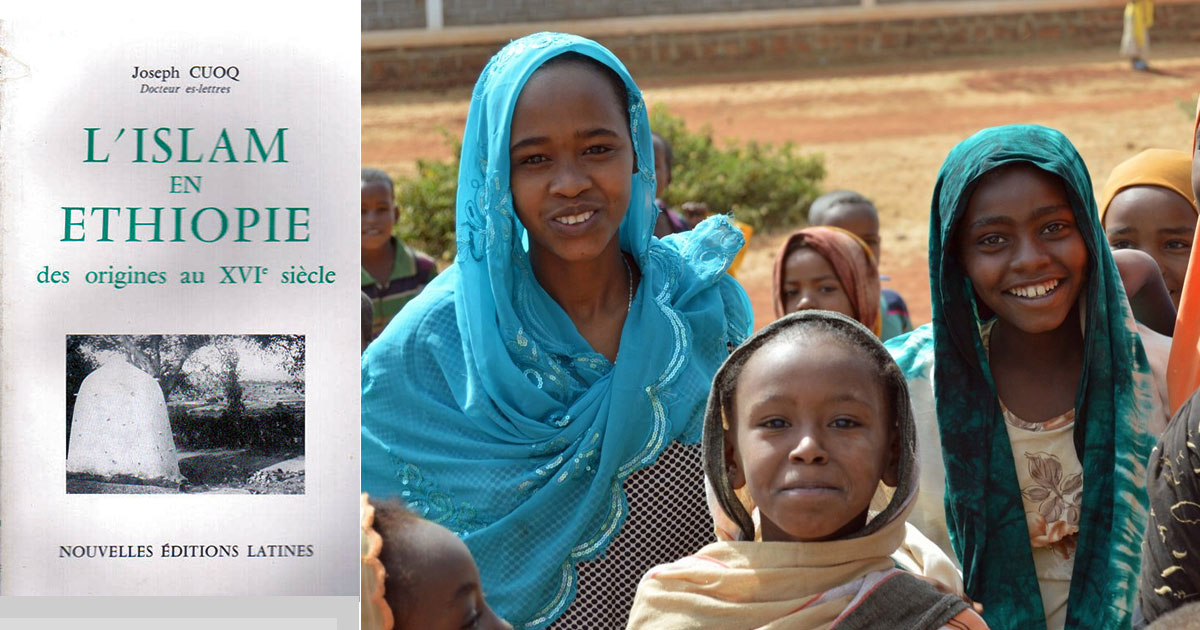
Ethiopia has become an inescapable regional power now, but the stability and security of the Ethiopian state has always depended to a large extent on the relations forged with its neighbors. A lesson its current leaders should reflect on.
by Dr.. Mounir Hanbali *
There will be much to say about the history of Islam in Ethiopia. Unlike Senegal and Mali, which are predominantly Muslim, this Christian-majority Red Sea country lies just a stone’s throw from Arabia, and like the latter, its population comes from a strong Afro-Semitic mix. How did this country not become Muslim despite such strong ethnic and cultural affinity and geographical proximity to Mecca?
The Ethiopian state, known as Aksum since ancient times, and dominated by the Amhara, was individualized very early in the fourth century of the Universal Era by converting to the Jacobite monotheistic Christian faith whose patriarchate is located in Alexandria.
On the religious level, this country has always relied on Egypt and the Coptic Church to appoint a metropolitan at the head of its national church. However, since its inception, Islam has maintained friendly relations with the reputedly just Negus (king) who welcomed the first refugees fleeing Mecca. It later spread through the Red Sea trade thanks to the control of some support points: the Dahlak Islands in front of Massawa, Zael, Mogadishu.
The decline of the Amhara state towards the heights of the Abyssinian plateau following wars with the peoples of the interior such as the pagan Gallas or the Falasha tribes, and the loss of the port of Adulis occupied by Islam, thus leaving the field open for the installation of a few sultanates as the Arab element gradually gave way to the Islamization of the indigenous population, mainly Somalis.
Religion is at the heart of politics
Thus, the Ethiopian state lost access to the Red Sea and its history was summed up in a continuous attempt to control all Muslim countries basically by blocking its way to make them its tributaries.
Despite these wars (Emirate of Showa, Emirate of Adal) the spirit of crusade did not prevail and Muslims could for the most part live well in Ethiopia without worrying there. But since the fourteenth century, with the arrival of Amda Tsion to power, things began to take a different turn, and the relations with the Mamluks of Egypt, that is, the fate of Egyptian Christians and the freedom of pilgrimage to Jerusalem, were questioned with the final defeat of the Crusaders, who stipulated this change. But not only: With the fall of the Nubian kingdom of Alwa, the Ethiopians had the impression that the Mamluks would one day conquer them by going up the Nile Valley and began to see in their fellow Muslims a fifth column, and the fall. Another Christian kingdom of Nubia, Dongola, two centuries later, only reinforced their fears. This consequently led them to an intolerant religious policy against Muslims which in turn aroused a strong feeling of hostility.
The Portuguese incursion into the Red Sea in the sixteenth century and their attacks on Muslim ports in order to secure control over trade with India and East Africa gave the conflict an international dimension, such as the arrival of the Ottomans to the shores of the Red Sea. Didn’t help.
In the end, it was this emirate centered around present-day Djibouti, Zeila and Ogaden of Adal that the strongest Islamic reaction would come with the wars of conquest of Imam Ahmad ibn Ibrahim, says Al-Gran (left). And its army, made up of Somalis, almost wiped the Ethiopian state off the map once and for all. After fourteen years of campaigns, he was finally killed in 1543 in Tigray by a Portuguese bullet, and this is evidence of a specific influence of European weapons in the outcome of the battles, and this can be compared to some extent with what happened later in Japan with the final victory of Oda Nobunaga who wore the cross thanks to the guns that introduced by the Portuguese.
The death of the Imam led the Muslims to turn back towards the Ogaden and the city of Harare. Sixteen years later, Imam Nur ibn al-Mujahid attempted a new war of conquest, but was eventually repulsed and killed. The invasion of the pagan Galla tribes, as well as plague and famine put an end to any large-scale military enterprise.
Since then, Islam has withdrawn upon itself in the Ogaden and Somalia, taking root among peoples converted at first only outwardly, and again in an African country the brotherhood, the Qadiriyya, seems to have played a large part in the permanent institution. from this religion.
The project of Imam Ahmad ibn Ibrahim’s conquest of Ethiopia was not intentional, it was certainly a jihad, but it responded to the logic of liberating Muslims from the yoke and intolerance of the Ethiopians, zealous in the spirit of the crusade and intolerance that was before. The contacts established with Portugal and the Catholic Church were unknown to them.
Egypt’s nightmare
Today Ethiopia remains cut off from the sea but the Ethiopian Prime Minister, like a large percentage of his population, remains faithful to Islam. Abiy Ahmed, the holder of power, is a Muslim, and he is the one who leads the works to retain the waters of the Nile, this ancient nightmare of Egypt that has thus become a reality, and in a world where water is scarce, control is in order. Water resources are now a major strategic issue.
Thus, the project of secularization of the state and society succeeded in this country, which is on its way to becoming an unavoidable regional power. But as this book makes clear, history teaches us that the stability and security of the Ethiopian state have always depended, to a great extent, on the relationships forged with its neighbours. A lesson its current leaders should reflect on.
* Free medical practitioner.
“Islam in Ethiopia – From its Sixteenth-Century Origins,” by Joseph Cook, New Latin Editions, 1981, 288p.






